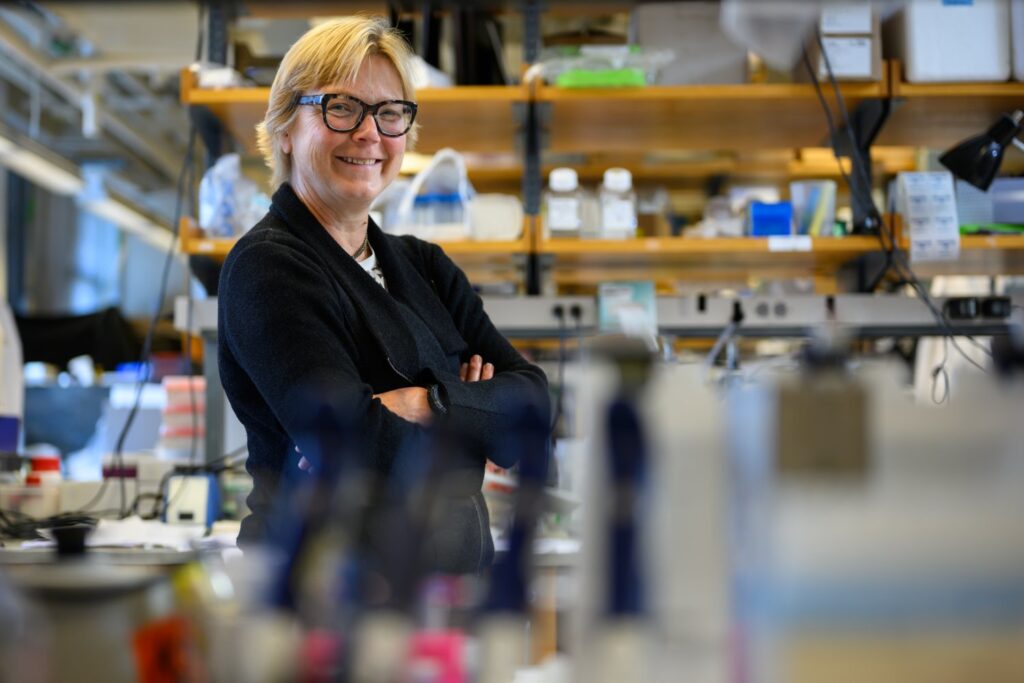
The Massachusetts Institute of Technology (MIT) has announced a groundbreaking initiative in women’s health research with the establishment of the Fairbairn Menstruation Science Fund. This ambitious project, launched by the MIT Health and Life Sciences Collaborative (MIT HEALS), aims to revolutionize the understanding of the human uterus and its role in sex-based differences in immunology, which contribute to conditions like endometriosis and other chronic inflammatory diseases.
The fund, created through a generous $10 million donation from Emily and Malcolm Fairbairn, seeks to attract an additional $10 million in matching funds. This initiative is poised to advance research into gynecological disorders and systemic diseases that disproportionately affect women, such as Lyme disease and lupus.
Transformative Research and Technology
According to Anantha P. Chandrakasan, MIT’s provost, the fund represents a significant step forward in a field that has historically lacked investment and visibility. “I’m deeply grateful to Emily and Malcolm Fairbairn for their visionary support of menstruation science at MIT,” he stated. “For too long, this area of research has lacked broad scientific investment and visibility, despite its profound impact on the health and lives of over half the population.”
Professor Linda Griffith, director of the MIT Center for Gynepathology Research, emphasized the potential of the fund to illuminate “the enormous sex-based differences in human immunity” and to drive next-generation drug discovery. A key component of this initiative is the development of “organs on chips,” which are living models of patients that allow for advanced experimentation and drug testing.
“Pharma and biotech realize that we need living models of patients and the computational models of carefully curated patient data if we are to move into greater success in clinical trials,” Griffith explained.
Addressing Critical Health Challenges
The Fairbairn Fund will also support the creation of a “living patient avatar” facility, where researchers can develop physiomimetic models for various health conditions. This will enable more accurate preclinical testing of drugs on human-derived models, potentially reducing reliance on animal testing, which often fails to replicate human menstruation and immune responses.
Griffith’s work with Michal “Mikki” Tal, a principal scientist at MIT, explores links between prior infections, such as Lyme disease, and chronic inflammatory diseases in women. Their collaborative efforts have already identified potential therapeutic targets, such as the intracellular enzyme jun kinase (JNK), which are being tested in partnership with biotech firms.
Public Engagement and Future Implications
Beyond scientific research, the fund aims to foster public engagement and reduce the stigma surrounding menstruation and related health conditions. This includes raising awareness about diseases like endometriosis, which affects one in ten women and often goes undiagnosed for years.
Emily Fairbairn’s personal experiences with Lyme disease and endometriosis have fueled her commitment to this cause. “My mission is to support intellectually honest, open-minded scientists who embrace risk, treat failure as feedback, and remain committed to discovery over dogma,” she stated. Her vision aligns with MIT’s interdisciplinary approach, which integrates immunology, neurobiology, bioengineering, and data science.
“MIT stands out for treating women’s health not as a niche, but as a frontier,” Fairbairn noted. “The Institute’s willingness to bridge disciplines offers a rare and necessary seriousness of purpose.”
Looking Ahead
The Fairbairn Menstruation Science Fund is poised to catalyze further investment from industry, government, and other foundations. As Griffith points out, “This fund is catalytic. Industry and government, along with other foundations, will invest if the foundational infrastructure exists.”
As the initiative progresses, it promises to not only deepen scientific understanding but also inspire a broader cultural shift in how women’s health is perceived and prioritized. With the support of visionary donors and pioneering researchers, MIT is set to lead the way in transforming menstruation science and improving health outcomes for women worldwide.







